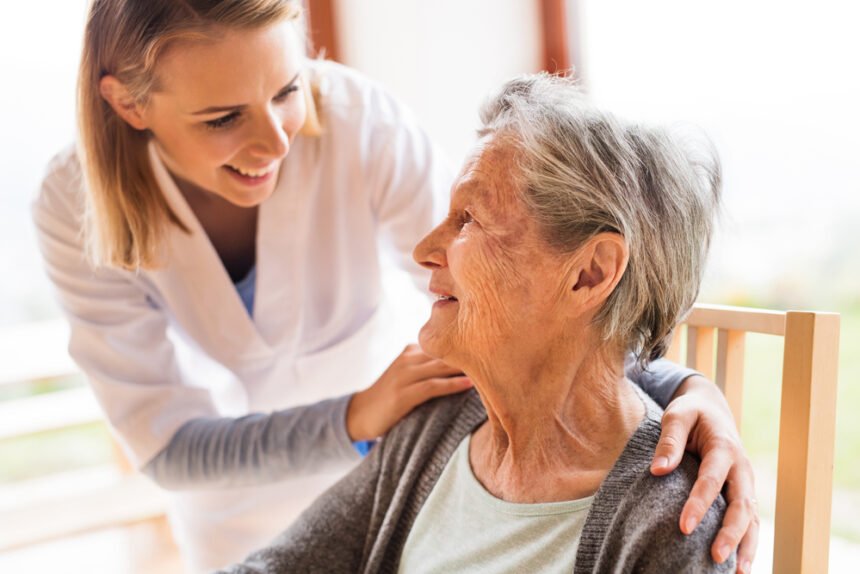At a young age, it can be easy to not think about your health. As you age, however, it becomes something you should take more and more seriously. What’s more, many of the health-related decisions we take earlier on in life end up dictating our health at a later age. It’s therefore something that it’s never too soon to start thinking about. Here are a few ways you can help make sure you age gracefully.
Making Sure Your Insurance is Sufficiently Comprehensive
It’s an unfortunate yet inevitable part of aging that the older you get, the more you have to visit a doctor. This is not necessarily a bad thing, as regular check-ups can be a great and informative way of making sure you are in top shape, and not doing anything which can end up seriously damaging your health. If you do take care of your health, then you may find aging can actually be a positive thing.
One major downside of this, however, is the additional cost associated with it. Health insurance plans generally have a limit on the amount of visits you can make to your primary physician annually. You may therefore think about investing in a more comprehensive plan which you can use more frequently, at no additional cost. Aging also means an increase in the number of medical conditions you need to be aware of. It’s therefore probably worth double checking what is covered by your current plan, both in terms of the illnesses covered, and the treatments. If, upon review, you feel there are any glaring gaps in your healthcare plan, you can purchase medicare supplement coverage, to insure against them.
Maintaining Good Dental Hygiene
Oral health can deteriorate severely with age, especially if you don’t take your dental health seriously. This is such an issue, in fact, that it is often considered an inevitability of old age that you lose your teeth. In reality, however, this is far from the case. Maintaining healthy teeth and gums as you age does not involve any special tricks, but instead, the key is to make doubly sure you are following the classic habits for oral health. This means brushing your teeth, flossing daily, and (unfortunately) visiting the dentist at least once a year. Also using mouthwash could be a valuable addition to your routine, too, as it can help clean the more neglected parts of your mouth, like your gums, tonsil, and tongue. Not all mouthwashes have the requisite chemicals to improve your oral health, though. Because of this, you should ensure that any mouthwash you is not purely cosmetic.
Looking After Your Skin
Skin is one of the most noticeable signs of aging, and while this is nothing to be ashamed of, it can be easy to get self-conscious about. Your skin also gets thinner as you age, and this can make it more susceptible to tears, rashes, and general irritation. Fortunately, there are also plenty of things you can do to protect your skin’s health as you age. Avoiding too much exposure to harsh sunlight is a good place to start, since this has other adverse risks associated with it, with skin cancer being the most severe. Moisturisers and skin creams can help, but you should make sure the ones you use don’t include any harmful or irritating chemicals, as this can end up doing more harm than good. Finally, water is one of the most important substances for your skin, and also naturally has a whole host of other health benefits. You should therefore do your best to stay hydrated at all times.
Improve Your Sleep Habits
Sleep is one of the most important parts of a healthy lifestyle at any age. Getting a quality 6-8 hours of sleep a night has a whole host of positive mental and physical health benefits associated with it. However, you may notice that doing so becomes more difficult the older you get. This is particularly true of elderly men, around 90% of which have enlarged prostates, meaning they need to get up regularly for bathroom visits. If you struggle regularly from insomnia, you will know how quickly sleep deprivation can adversely impact both your temperament and your mental faculties. Fortunately, though, there’s plenty you can do to get into a more reliable sleeping pattern. Going to sleep and waking up at a similar time each day is a great place to start. This will soon make your body naturally feel more tired at this time, when you’re ready to go to sleep. In addition, exposure to natural light will also help your body’s circadian rhythm adjust. Finally, try to avoid looking at screens close to when you go to sleep. This is because the light they emit can tamper with your body’s internal clock, making you more awake right before you need to sleep.

